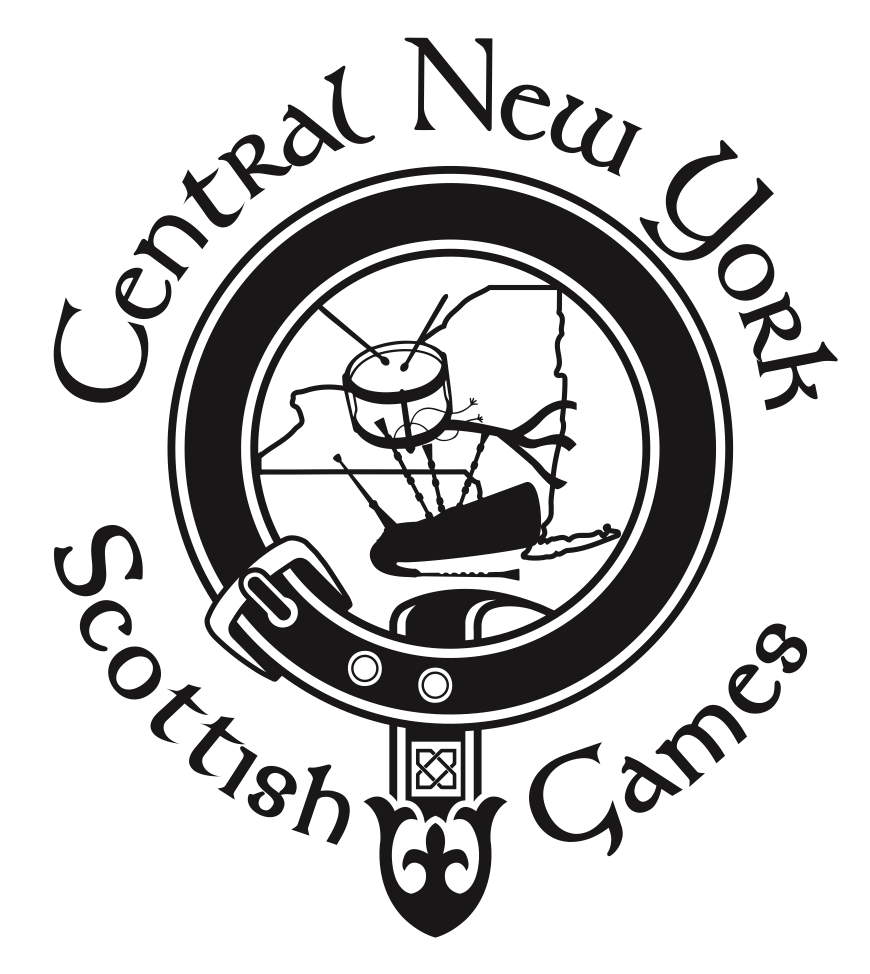

Bagpipes
A Scottish Games would not be a Scottish Games without the thrilling sound of the bagpipe. No one really knows where bagpipes originated. Although most closely associated the Scottish Highlands, they are, in fact, found in many cultures around the globe. One theory has them originating in the Far East and traveling to Northern Africa. There are pictures of bagpipes on the walls of the Egyptian Pharaohs’ tombs. It was certainly a quick jump across the Mediterranean Sea to what is now modern-day Spain, Italy, and Greece. Types of bagpipes are still played in these regions. The Celtic tribes carried the instrument with them through Europe and on to the British Isles. Middle Age art portrays bagpipes as a featured instrument in the outdoor entertainments of that period.
The key word is “outdoor.” As entertainments moved from town squares and courtyards to indoor venues, the bagpipe was replaced with more “indoor-friendly” instruments such as the pianoforte (piano). In the wild Highlands of Scotland, however, bagpipes found a permanent home. Nurtured by the hereditary clan chiefs who employed personal pipers, the instrument became the national instrument of Scotland. Wherever Scots went, the bagpipe traveled with them. The British Government also unknowing contributed to the spread of bagpipes. After the Battle of Culloden where British forces defeated the Scottish army of Bonnie Prince Charlie, the bagpipe was banned as an “instrument of war.” When the British government raised several Highland regiments, it had no idea that the bagpipe would soon find itself integrated into the culture of the British Army, and the army would spread the bagpipe world-wide.
Although the bagpipe was played in North America by British troops as early as the French and Indian Wars of the mid-1700’s, it was Scottish immigration patterns in the late 19th Century and the period after the 1St World War that introduced the instrument to a wider American audience. In many communities where Scots gathered, pipe bands were formed, many taught by veterans of the British Army. Many of the competitors at the CNY Scottish Games can trace their knowledge of the instrument to these immigrants. The CNY Scottish Games is proud to be part of this living link to Celtic culture.
Celtic Drumming
Drums are certainly the oldest instrument known to humans. One can certainly imagine our cave-dwelling ancestors beating on logs or the ground to provide background to the human voice. Drums found usage in the military from the earliest days of armies. Often used to signal orders and alarms, they were also used to help keep spirits up as troops were on the march. It was the British Army that married bagpipes and drums in the Scottish regiments. A particular type of drumming, Celtic drumming, evolved as a result of the union of pipes and drums. Because of the high pitch of bagpipes, a unique drumming style and tuning were required to compliment the pipes. The CNY Scottish Games highlights Celtic drumming in both solo and band competitions.
Bagpipe and Drumming Competitions
Bagpipe and drumming competitions at the CNY Scottish Games take two forms: solo and band competitions. The Games are sanctioned by the Eastern United States Pipe Band Association (EUSPBA) which is the second largest pipe band association in the world and the largest in North American. Solo competitors are placed in six grades based on ability: Amateur Grades 5 through 1 (the highest) and Open (professional). The CNY Games offers competitions in all the amateur piping and snare drumming grades. Pipe bands are also placed in grades: Grade 5 through 1. The CNY Games offers contests in Grades 5, 4, and 3. Time, effort, and commitment are required for both soloists and bands before they take the field since piping and drumming are not easy endeavors. The CNY Scottish Games is proud to continue these important traditions in the Celtic arts.
Any questions, please contact:
Jim Engle
pipesanddrums@cnyscottishgames.org


